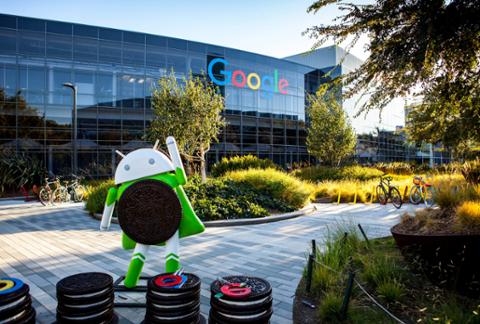 Android Kotlin[/caption] Kotlin is now an official language for Android. At this year's edition of its annual I/O conference, Google said it was “excited” to work with JetBrains, which created the language, on the port. Kotlin is considered stable after cresting version 1.0. It’s type-safe, has an easy-to-grasp syntax, and works perfectly with Java. Perhaps just as interesting, it's also useful for the web (and server-side), where Google is heavily invested. This idea was first bandied about over a year ago (by yours truly) when news popped up that Google was considering other languages for use with Android. At the time, Kotlin was nowhere near as solid as it is today, with sources claiming the compile time was just too poor. With time, it has improved dramatically, and is clearly ready for proper use on Android.
Android Kotlin[/caption] Kotlin is now an official language for Android. At this year's edition of its annual I/O conference, Google said it was “excited” to work with JetBrains, which created the language, on the port. Kotlin is considered stable after cresting version 1.0. It’s type-safe, has an easy-to-grasp syntax, and works perfectly with Java. Perhaps just as interesting, it's also useful for the web (and server-side), where Google is heavily invested. This idea was first bandied about over a year ago (by yours truly) when news popped up that Google was considering other languages for use with Android. At the time, Kotlin was nowhere near as solid as it is today, with sources claiming the compile time was just too poor. With time, it has improved dramatically, and is clearly ready for proper use on Android.
Via a blog post, JetBrains says it’s excited about the Android project, and is spinning up a non-profit foundation for Kotlin:You've been waiting for this: Google just announced that Kotlin has become a first-class language on Android!https://t.co/4OMODKPIy7 pic.twitter.com/M9IEYmfO8s
— Kotlin (@kotlin) May 17, 2017
Programming languages are just like human ones: the more people speak a language, the better. First-class support on Android will likely bring more users to Kotlin, and we expect the community to grow significantly. This means more libraries and tools developed in/for Kotlin, more experience shared, more Kotlin job offerings, more learning materials published, and so on. We are excited to see the Kotlin ecosystem flourish! We will be partnering with Google to create a non-profit foundation for Kotlin. Language development will continue to be sponsored by JetBrains, and the Kotlin team (over 40 people and second largest team at the company) will operate as usual. Andrey Breslav remains the Lead Language Designer, and Kotlin will be developed under the same principles as before. We’ll keep our design processes open, because your feedback is critical for us in moving Kotlin in the right direction.It’s important to note that Google isn’t acquiring JetBrains; this isn’t a move to compete with Apple and Swift. Nonetheless, it represents a cleaner approach to app development, and will likely serve as a better entry for new Android developers. Where Java gets clumsy, Kotlin cleans up. JetBrains also assures developers that it won't drop support for other platforms such as JVM now that it's Android's newest language. What will be curious is whether this accelerates Kotlin's popularity. Go, a language developed internally at Google, took the programming world by storm last year. This partnership with JetBrains is a first for Google, but it still adheres to the company's open source ethics, so we'll be curious to see if the uptake is as sharp as it was for Go, and how – or if – Kotlin snipes developers from Java.



